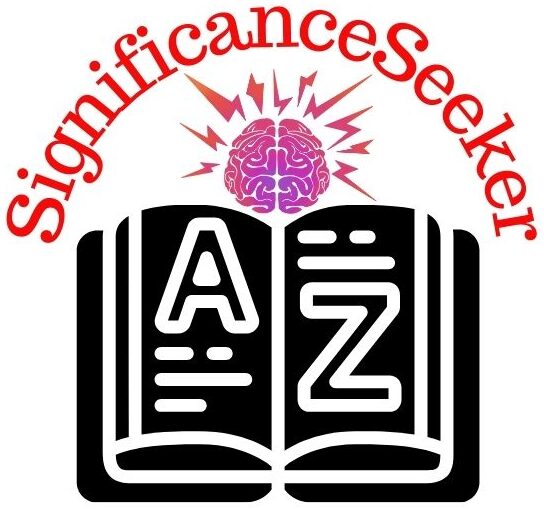“Freedom is not merely the absence of chains, but the ability to make us how we respond to adversity. It’s the power to shape our destiny in any circumstance. True freedom is the state of mind that thrives in the fertile ground of self-discovery and the unwavering, consistent pursuit of truth and reality.”
Freedom is profoundly significant in personal as well as in societal contexts. In the personal context, it represents the independence to make choices aligned with one’s values and desires. On societal level, freedom is the foundation of a just and equitable society. It supports the principles of democracy and human rights, ensuring that individuals enjoy equal opportunities and protection under the law.
Overall, the significance of freedom lies in its capacity to empower individuals, cultivate creativity, and contribute to the collective well-being of society. It leads the society towards justice, equality, and harmony, making the world a more liberated and peaceful place to live in.
Now let’s discuss what is freedom and what does it truly mean to be free;
What is Freedom
The nature of freedom is inherently multifaceted, covering a range of dimensions. It goes beyond a simplistic concept, encompassing a nuanced and complex understanding. Let’s discover various threads of true freedom;
1. Individual Autonomy:
It means the ability to make choices independently, irrespective of external pressure. Individual autonomy is the freedom to make personal decisions, adopt a lifestyle of your own choice, and pursue your aspirations.
2. Social and Political Freedom:
Social and political freedom give you the opportunity and right to express your opinions fearlessly, participate in governance, and live free from discrimination or oppression.
3. Economic Freedom:
Economic freedom involves the ability to engage in trade, entrepreneurship, and financial pursuits without any constraints. It leads to creating opportunities for prosperity and mitigating systemic inequalities.
4. Intellectual Freedom:
It includes the freedom of thought, conscience, and the pursuit of knowledge without ideological imposition. Intellectual freedom allows individuals to explore, question, and adopt various perspectives.
There may be some other aspects of freedom like cultural and artistic freedom, freedom in relationship, but the above are the most involved ones. They collectively shape the rich and intricate fabric of liberty.
Pillars of True Freedom
Equality and human rights are foundational pillars that play a pivotal role in the attainment of true freedom. They create a framework where you can exercise your liberties without discrimination and restrictions. It includes;
1. Equal Opportunities:
Equality means providing equal opportunities to everyone, irrespective of their background, gender, race, or socio-economic status. It ensures the pursuit of education, employment, and other avenues, enabling individuals to realize their full potential and exercise their freedom to choose their life paths.
2. Protection from Discrimination:
Discrimination on the basis of gender, religion, or sexual orientation hinder the attainment of true freedom. Human rights, particularly those focused on non-discrimination, protect individuals from unjust and prejudiced treatment.
3. Freedom of Expression:
Freedom of expression is the power of voicing your thoughts and opinions without repression. This right contributes to healthy dialogue and critical thinking that leads to intellectual freedom.
4. Right to Education:
Equal opportunity for individuals to acquire knowledge and skills is a fundamental human right. It enables individuals to equip themselves with quality education, broaden their horizons in order to participate in the betterment of the society. This ensures overall freedom and autonomy.
5. Dignity and Respect:
Every person has the right to live with dignity and respect. A society that fosters an atmosphere of respect and understanding, contributes to the emotional and psychological well-being of its individuals. It instills a sense of freedom in their lives.
The Pursuit of Happiness Through Freedom

The pursuit of happiness and the quest for freedom are profoundly connected, found in the fabric of human experience. This bond demonstrates the ability to shape one’s own destiny, desire for autonomy, and fulfilment.
1. Autonomy Guarantees Happiness:
Autonomy, a core aspect of freedom, enables you to make choices based on your adopted values and aspirations. This ability of determining the course of your life leads to the pursuit of happiness. When you’re free and have the power to take charge of your life, it gives you a sense of happiness. Because it enables you to navigate challenges, set your personal goals, and work for a career that brings you joy and satisfaction.
2. Freedom from Oppression and Well-Being:
Freedom from oppression and tyranny contributes to the overall well-being of individuals. When you’re free from unjust constraints, you’d undoubtedly pursue your goals, and that’s the ultimate pursuit of happiness.
Related: Waist Beads – Meaning and Symbolism
Final Take Away
To sum it up, true freedom isn’t the mere absence of physical constraints; it’s the power and ability to shape your destiny, exercise autonomy in various spheres of life, and live in a society where everyone can enjoy equality and basic human rights. You’ll live in a society where you can have social and political freedom, and economic liberties. These pillars provide the framework within which you can pursue happiness, guided by their own values and aspirations.
Moreover, true freedom lies not only in the ability to exercise personal liberties but also in creating an environment where every individual has equal opportunities, protection from discrimination, and the right to express themselves freely. It is through the collective efforts to uphold these principles that we can truly create a society that fosters liberation, justice, and harmony for all.


Бухгалтерские услуги в Москве для предприятий: как повысить эффективность
бухгалтерские услуги стоимость https://www.buhgalterskie-uslugi-495.ru .